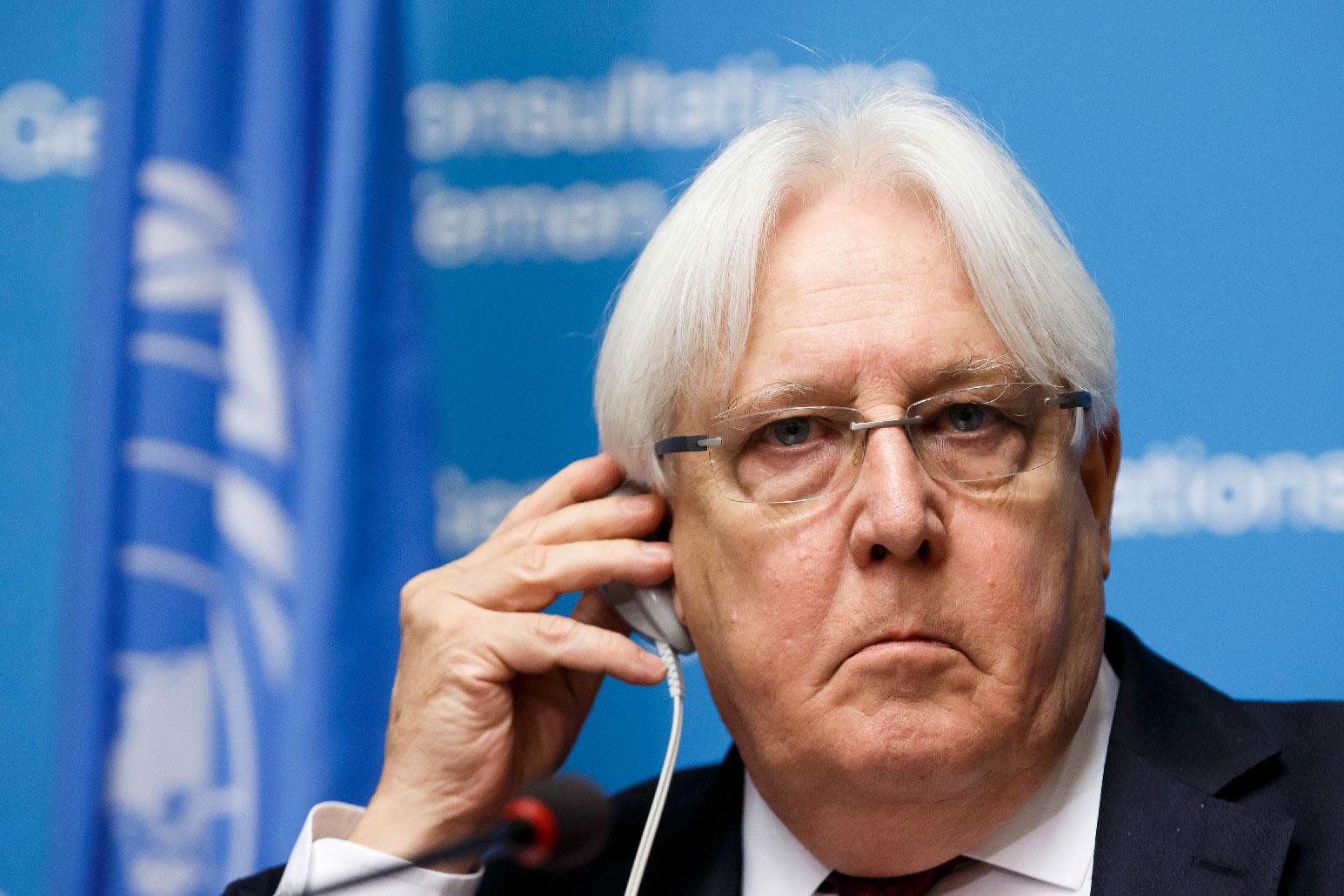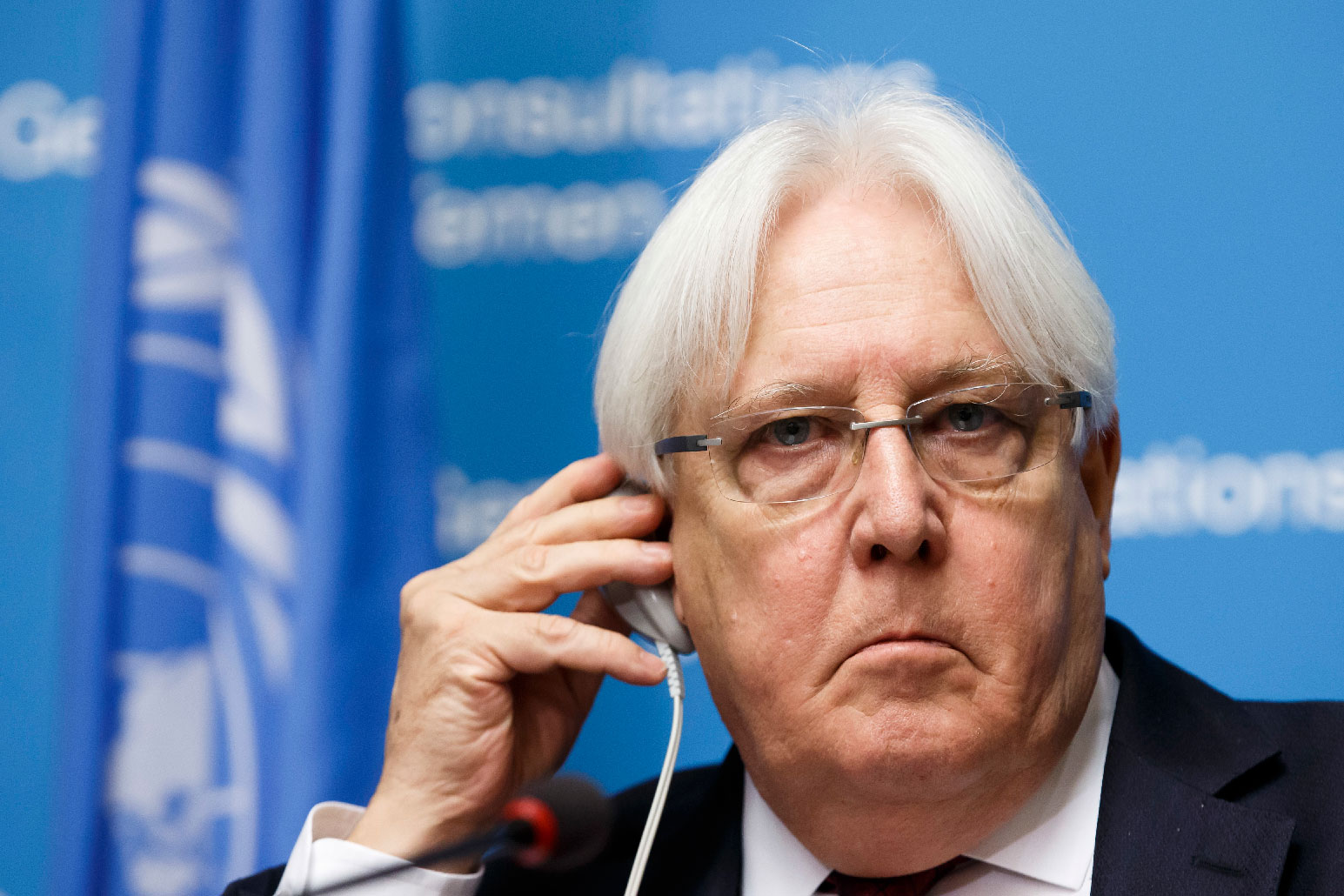UN's Yemen envoy trying to get talks back on track
SANAA - The UN's Yemen envoy Martin Griffiths has discussed a possible new round of peace talks with the country's Huthi rebels, who last week refused to attend negotiations in Geneva.
Griffiths met with the head of the Huthi delegation, Mohammed Abdulsalam, on Thursday in the Omani capital Muscat, the rebel-run Saba news agency said.
Another Huthi official, Abdelmalak al-Ajri, also attended the meeting where the rebels discussed the reasons for their absence from Geneva with the United Nations envoy.
The first negotiations between Yemen's warring sides in two years were scheduled to open last Thursday, but a Yemeni government delegation left after the Huthis refused to travel to Geneva.
The rebels had accused the UN of failing to guarantee the return of their delegation from Switzerland to the Yemeni capital and to secure the evacuation of wounded rebels to Oman.
This Thursday's talks also covered the "necessary measures" needed for fresh talks to take place "as soon as possible", Saba reported.
Hamid Assem, a member of the Huthi delegation, said on Friday there had been no breakthrough towards resuming talks.
"There has not been progress regarding the discussions while we have not received the guarantees," he said by phone.
On Tuesday, Griffiths told the UN Security Council he would travel to Muscat the following day in a bid to revive talks.
His schedule would also take in the Yemeni capital Sanaa, held by the Huthis, and Saudi Arabia, which leads a coalition against the rebels.
Last week the Huthis said conditions set for their attendance in Geneva, linked to the evacuation of wounded rebels to Oman and safe passage for the return of the rebel delegation to Yemen, had not been met.
New clashes around port
The last talks between the Huthis and the Yemeni government, led by President Abedrabbo Mansour Hadi, took place in Kuwait in 2016.
Those negotiations faltered over power-sharing and the withdrawal of rebels from key cities such as Sanaa.
They broke down after 108 days and the rebel delegation was subsequently stranded in Oman for three months due to a coalition air blockade.
After the failure of the Geneva talks, deadly clashes resumed around Yemen's port city of Hodeida which is held by the Huthis and serves as a vital entry point for aid.
Medical sources in Hodeida province said Thursday nearly 50 people, including seven rebel fighters, had been killed in the past 24 hours alone.
The Huthis launched a counter-offensive on Thursday to retake control of two major supply routes into Hodeida, which Yemeni government forces said they had seized the day before, military sources said.
"The liberation of Hodeida is the key to the solution in Yemen," the UAE's foreign affairs minister Anwar Gargash wrote on Twitter.
"The noose is tightening" on Hodeida, added Gargash, whose government is a key part of the Saudi-led coalition.
Since Riyadh and its allies intervened in Yemen in March 2015, around 10,000 people have been killed in a conflict which has sparked a grave humanitarian crisis.


